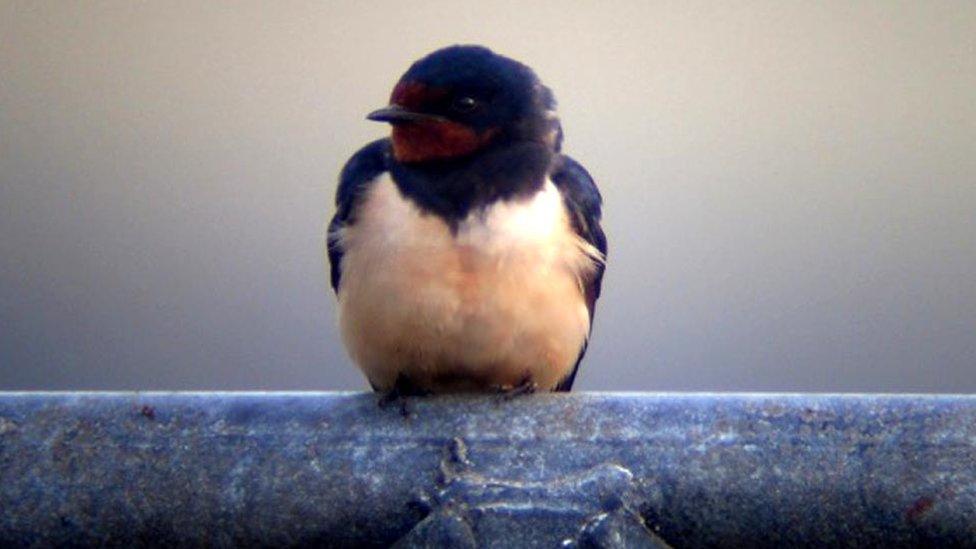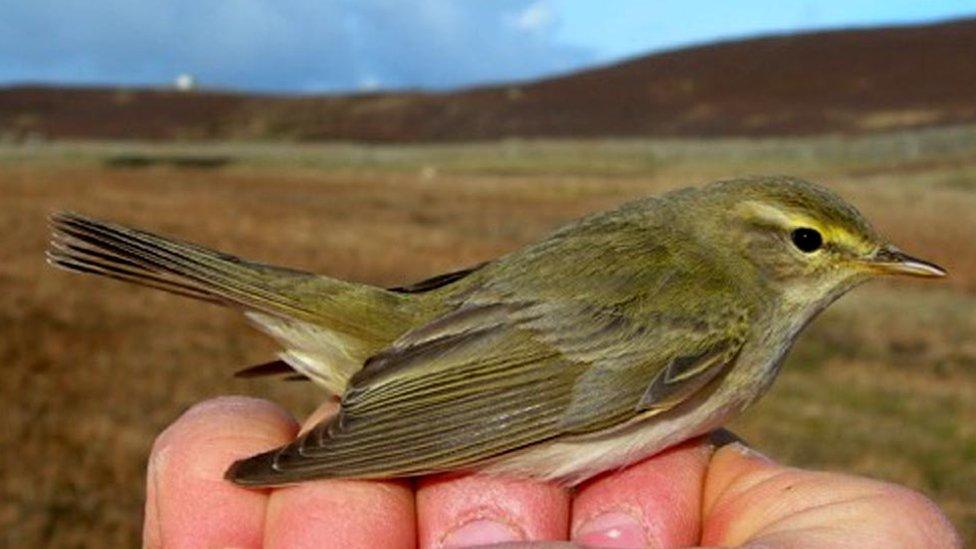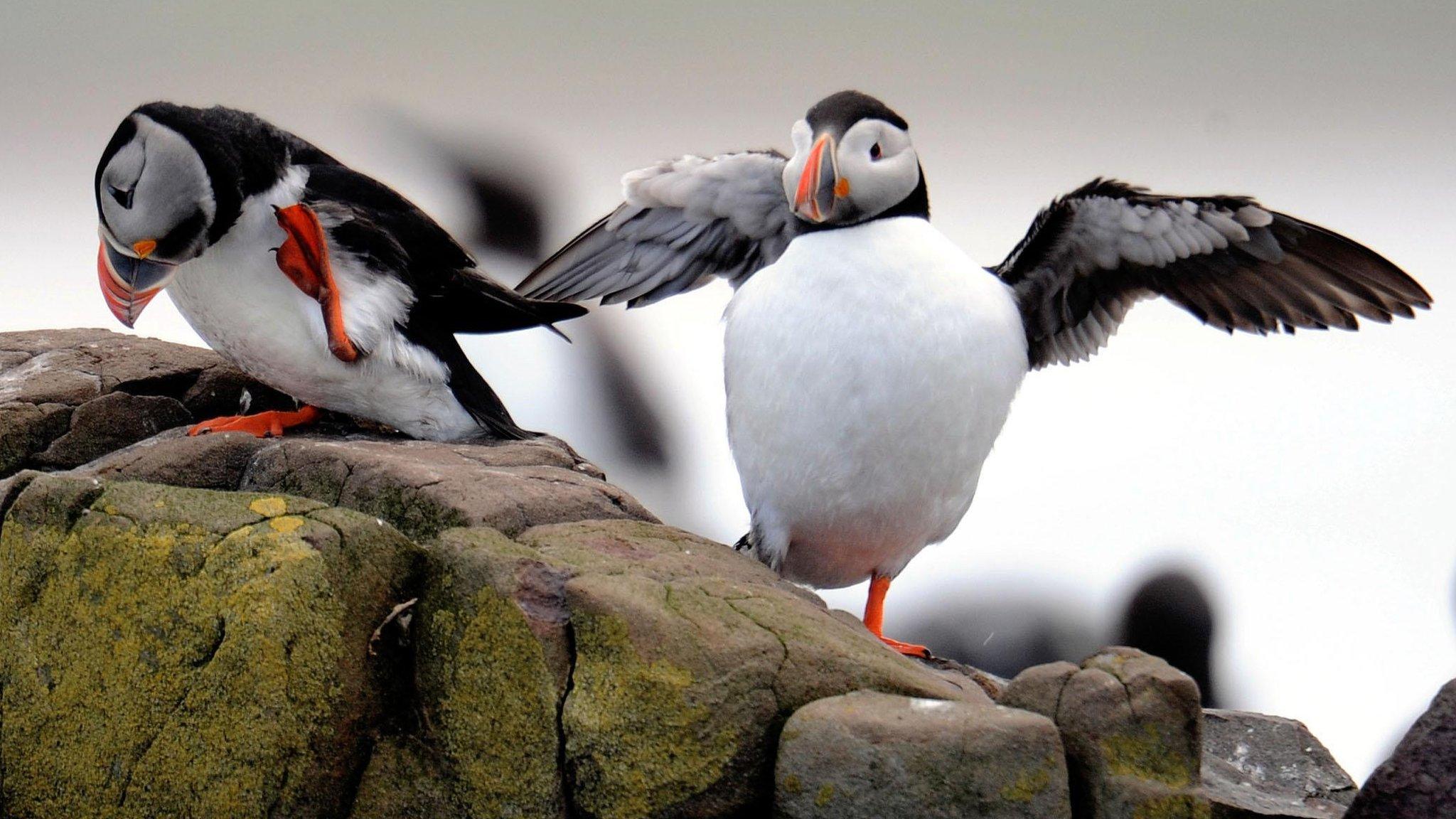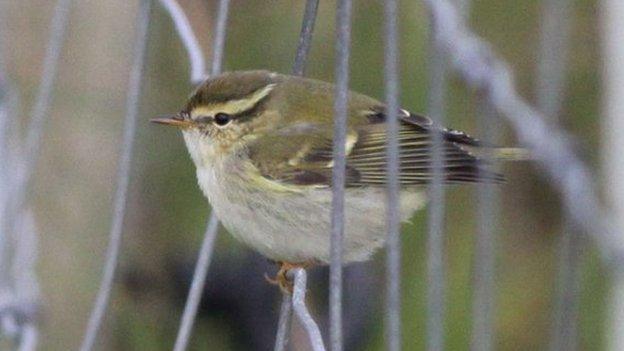Migrating birds 'more reluctant to leave UK' suggests Fair Isle study
- Published

Swallows were part of the study
Migrating birds such as swallows and house martins are increasingly reluctant to leave the UK and return to Africa, a study on Shetland's Fair Isle has suggested.
The research, published in the science journal Global Change Biology, indicated some were arriving earlier and others were leaving later.
The study used daily observations of birds from Fair Isle Bird Observatory.
The aim was to measure changes over the past 60 years.

Willow warblers were also assessed
Dr Will Miles, of the Fair Isle Bird Observatory, said: "Environmental conditions are changing rapidly at a global scale.
"In response to these changes, the seasonal life-cycles of plants and animals are shifting too, often in dramatic and unexpected ways.
"It's too early to know for sure exactly why bird migrations now last so much longer in spring and autumn, but it's possible that conditions in Europe and Africa have gradually become more favourable for long-distance migration, and the birds are now under less pressure to migrate quickly within a short time window.
"For example, on Fair Isle, swallows and house martins are migrating up to a fortnight later than they did a few decades ago.
"Willow warblers used to migrate within a five-week period in spring but now this species is seen on migration for up to 10 weeks.
"Some species appear to be staying in Europe for longer in the summer and may breed several times, and that is an advantage for the birds."

The study was carried out on remote Fair Isle
The Fair Isle Migration Project is a collaboration between the Fair Isle Bird Observatory Trust and the University of Aberdeen.
Fair Isle is Britain's most remote inhabited island.
- Published16 July 2015

- Published29 June 2015

- Published20 May 2015

- Published1 July 2011
![Fair Isle Bird Observatory [Pic: Deryk Shaw]](https://ichef.bbci.co.uk/ace/standard/464/mcs/media/images/53800000/jpg/_53800468_fair_isle_birds_deryk_shaw.jpg)